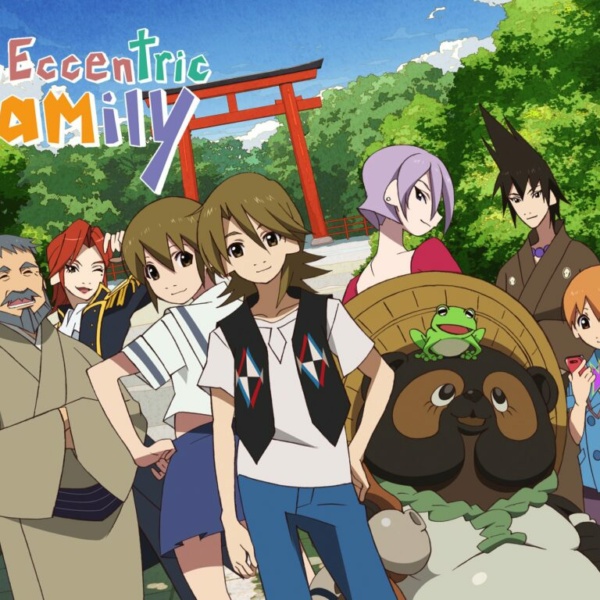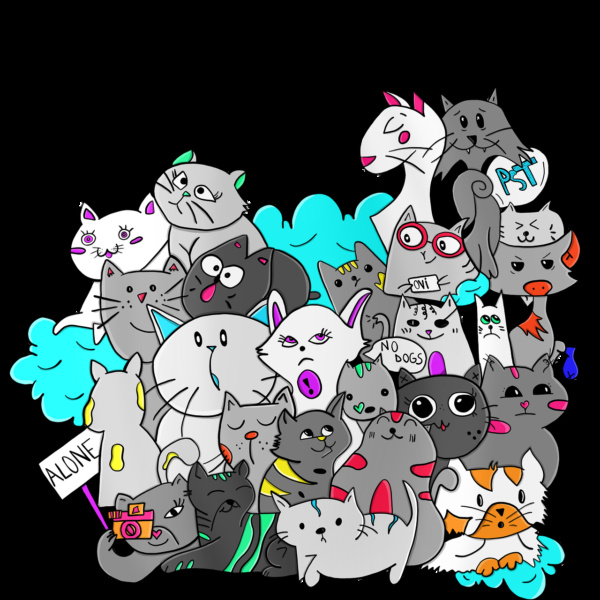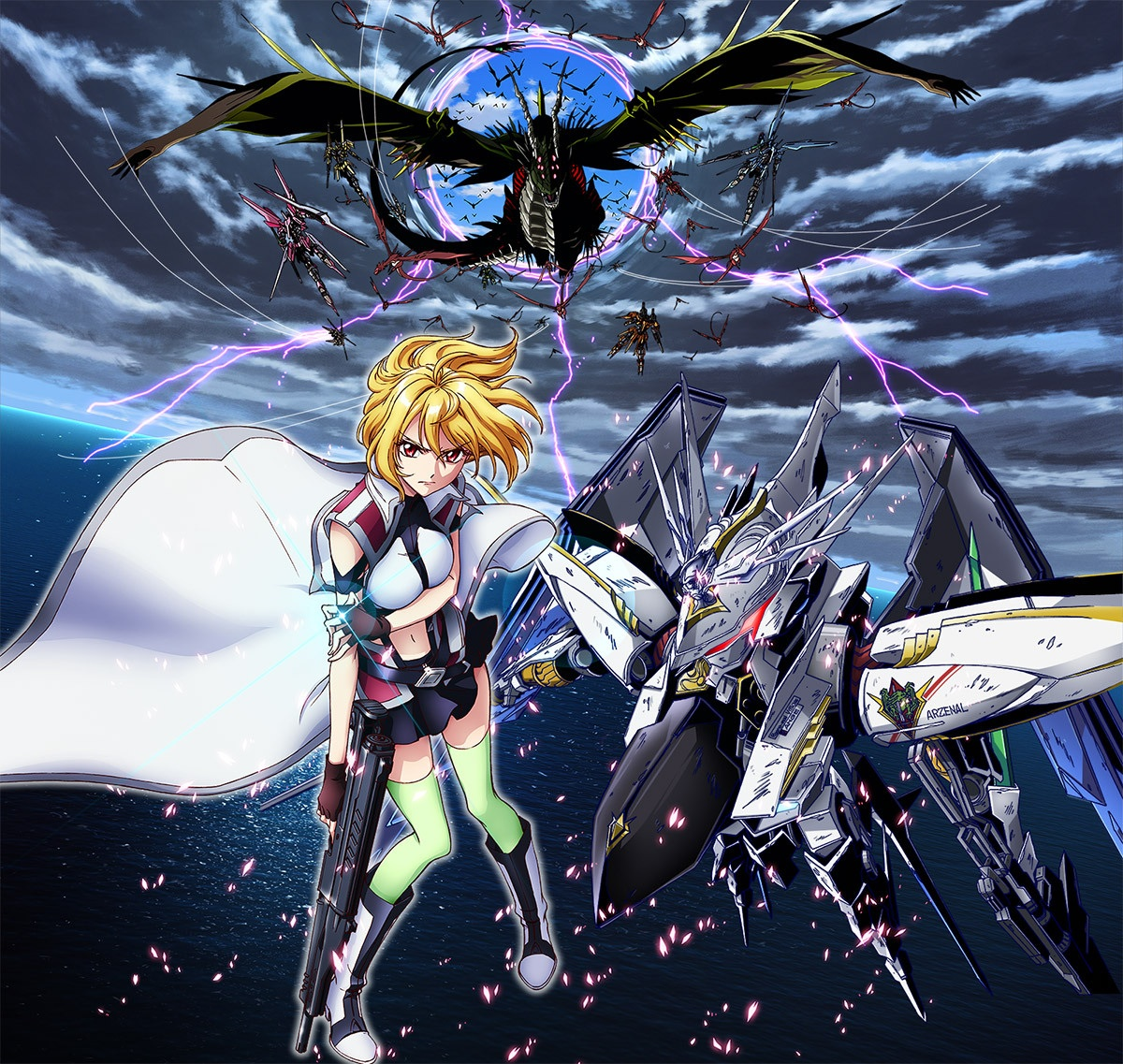
This is one of the most controversial shows, and it’s all because of the first episode. People were really looking forward to this show, a new mecha show from the same studio that brought us Cowboy Bebop, Gundam SEED, and Code Geass? Yes, Please! But instead of that, we got something completely different. Racism, voyeurism, misogyny, hyper-violence, and rape are among the unexpected parts of the first episode that started the show. Since then, the show has gone from unnecessary, hyper-controversial, and near-unwatchable and turned into a fleshed-out hero narrative in a complex world with some of the best character development in the medium. Is the beginning a little rough? Yes, but we think the creators did that for a reason. They wanted to break the spirits of everyone watching, just like they break the spirit of the main character. Ange is melted down, refined, tempered, shaped, and crafted until she finally emerges fully formed and beautiful. Cross-Ange has deep lore, an incredible hero’s arc, and fantastic action. It’s a lot more than a two-minute fanservicey-rape scene.
A True Hero’s Arc

All the way until the very last episode, Ange is refined and grown as a character. The whole show is built around her character arc. Since so much of her arc is filled with spoilers, we can’t go into it in detail, but the transformation from spoiled princess to noble, self-sacrificing, unshakable, resolved badass is realistic, well-earned, and interesting. Starting with a completely unlovable character and turning into a character you can root for is rare and special. The transition of Ange’s character is very clear as she goes through complex, difficult emotions and doesn’t just show them off as a slideshow of supposed complexity. Each transition makes sense for where she is in the story and what’s going on around her. She becomes not only a better person but a stronger, more capable person. And despite all this, she never loses her edge. She doesn’t become weak or easily manipulated by others. Instead, she forges this indomitable will that won’t bow to anyone, even when subjected to the worst kind of torture. Best of all, she recognizes that as strong as she is, she can depend on the people that she really trusts. Momoka, her maid and best friend, and Tusk, the obligatory love interest, are her primary source of support and instead of making her weaker, having these friends makes her a stronger and better person. She develops true, meaty, deep friendships with almost everyone. It’s not that she “needs some man” or whatever, instead, she explicitly chooses to rely on and care for these people and is stronger for it. She doesn’t single-handedly defeat Embryo with a super move, and her man doesn’t make her stand back while he fights everyone. She and her friends work together to overcome the evil that they would have been unable to defeat on their own. Best of all, her brokenness is what allows her to be such an effective leader. We started the show hating her so much, but now she’s one of our favorite protagonists ever.
Embryo
This guy is an absolute sicko. He doesn’t show up until about a third of the way through, but despite being refined, classy, and smooth, you instantly know this guy is no good. He doesn’t really show up until close to a third of the way through the show, but he quickly transitions into primary antagonist territory. He’s so full of himself, so disgusting in the way he treats the characters, but at the same time, he’s an absolute genius. He loves to manipulate people using their psychological weaknesses. He turns people who were against him into his pawns. He gives them exactly what they want by filling the psychological need in their lives which leaves them utterly devoted to him. It’s actually disturbing to watch because you start to understand how anyone could be manipulated by him if they didn’t have extremely strong psychological support. And then these women that he manipulates and uses, none of them matter to him because what he really wants is Ange…probably because she’s the only one who doesn’t “fall for his tricks.” He’s the very definition of an arrogant, misogynistic, narcissist. Also, we hate him. He’s awful. Did we say that already?
Pacing and World Building
The show has absolutely stellar pacing. It starts off by focusing specifically on Ange and her fellow Norma at the Norma prison, Arzenal. You learn a little bit about the characters, their motivations, and the background of the world around them. Jill, the commander, has something sketchy about her past, all of the norma are psychologically scarred, and the show continues to lay out the basics of how norma are treated, hint at what happened in the past, the personalities buried underneath their hard shells and so forth. As Ange transitions from a hated outcast into a loyal comrade, you get this very smooth gentle sense of progression until she’s fully integrated herself into the society around her. Then, right before the halfway point, things get wicked awesome. Characters are introduced out of nowhere, answers to questions we didn’t know we had, new questions, etc. At this point, the show goes from a steady, but consistent pace and changes tones completely. It reminds us of Death Note, where 2/3 of the way through the pace of the entire show changes even though the characters and themes stay the same. It’s not a new arc, it’s a continuation of the old one, but it feels completely different. You get a couple of episodes to set up the new purpose of the show with a lighter-hearted episode thrown in, but then the show slowly increases in tension for the final climax. By the end, you have almost (we’ll get to that) of your questions answered, an excellent understanding of the world that the show exists within, and a satisfying ending.
The Other Characters
When the show starts off, you don’t really care that much about the other norma at Arzenal. They’re mostly just faces, hairstyles, and colored uniforms, and this is because they don’t actually matter that much in the story at that point. But, right before these characters become important, you get to see a little window into their mind that explains their motivations a little better. Then, in the following episodes, they gain prominent roles in the importance of the show, after you finally start to remember who is who and what they care about. They aren’t introduced at the last second, but at the same time, they don’t distract from the primary activity at the beginning of the show. Jill slowly has her backstory teased out over the course of the show to great effect. Momoka, Ange’s old maid, and Tusk, the love interest, actually have agency and become quite independent, not being mere extensions of the protagonists’ will. If we didn’t know who a character was, we probably didn’t need to know. And if we did know who a character was, then we had already been introduced to them and gotten more than a one-dimensional look at their character before they became a vital part of the plot. By the end, all of the norma side characters who were introduced during the second episode have been fully fleshed out with all of their weaknesses, strengths, and character arcs of their own. It’s been a while since we’ve seen so many characters get their due in a show, especially in so few episodes. For all of the flaws within the plot itself, the character development was absolutely perfect.
The Themes
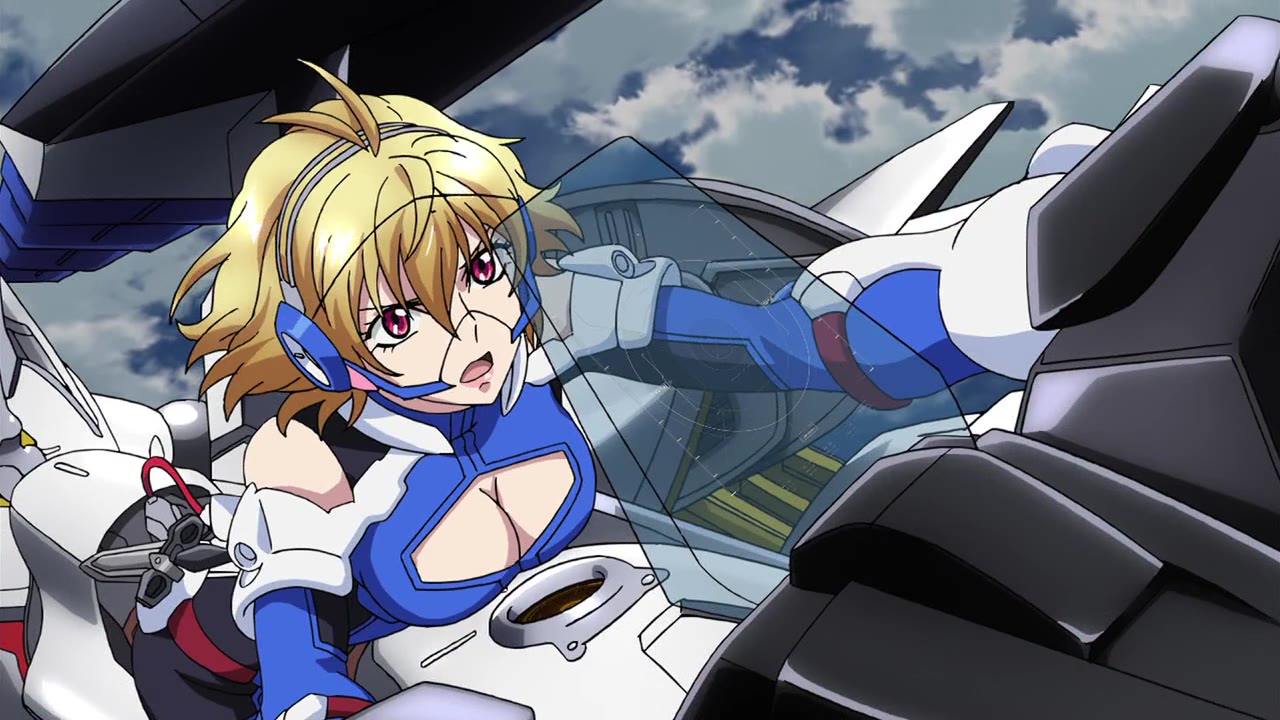
You may have noticed by now, but a large part of Cross-Ange is how it deals with certain themes. The ones it covers most heavily are discrimination (race or gender), and the complexities of the psyche, but both of these themes are ultimately tied into manipulation. The idea of how people are manipulated into hating the norma in order to be at peace with each other is a prominent part of the first half, and then the second half is all about how people who think they’re happy are really broken. Both of these ideas are a part of Embryo’s larger plan. He manipulates the people of Earth into hating the norma so that he maintains order in his perfect world. At the same time, by making the norma feel isolated and broken, he can manipulate them in order to make them love him with undying devotion. To the audience, it’s obvious that he’s manipulating everyone, but to the people, he’s dealing with, they need what he’s offering so badly that they willingly submit themselves to him. The normal population desires peace and a common enemy, and the norma he uses has more specific personal needs. The show also serves as a warning to its viewers not to fall into the traps that these people put themselves in. Create a support system of people who love you, and make sure you communicate your insecurities to them. A lot of the trauma and heartache could have been avoided if, instead of trying to appear strong, people admitted their weaknesses. It’s hard to put into words, but when you watch the show, the perfect balance of subtlety and obtuseness communicates these themes so they’re both clear and under-stated.
The First Episode
Let’s get this out of the way, we’re going to spoil the entire first episode for y’all because that’s what everyone is going to watch and then freak out. The first episode is designed to preview and explain the dichotomy and brokenness of the world that Princess Angeliese inhabits. All of the imagery, plot, events, character introductions, everything except the fanservice itself was designed to reinforce the idea that Ange lives in a world that appears perfect, but is rotten on the inside. The episode starts with a peppy game that looks like a combination of lacrosse and Quidditch. People fly around on speeders, one of the teammates on Ange’s team gets hit by a ball and falls off. Ange leaps in the way in order to catch her but sacrifices the win in the game. Everyone cheers for her bravery and kindness because she’s the hero etc. etc. In the next scene, as she is driving home, she and her family come upon a mother being harassed by the police. Her baby is being taken away from her because the baby is a Norma. The reason this world is so perfect is that everyone can use this mystical force called Mana to literally fulfill all their needs. Heal injuries, operate vehicles, make food, make clothes, it can be used for practically anything. Norma, are people, exclusively girls, who can’t use Mana and therefore don’t fit into the perfect society. When Princess Angeliese appears, you expect her to be just as kind and caring as before, but instead, you get words like abomination, and repulsive to describe the child who is being taken away from her mother. The baby is thrown in a cage and taken away by the police to who knows where. It’s obvious where this is going right? It turns out that Angeliese herself can’t use Mana either and her parents have been protecting her this whole time. She’s outed by her brother during her coronation and both of her parents are killed in bloody, violent, dramatic fashion. Ange is covertly taken to an island facility for all Norma, where they strip her naked, install some kind of electronic equipment in her rear end (the famous rape scene), and leave her crying on the floor of a stone cell, bleeding from her anus, in denial of her new status as abomination and outcast.
In the show, this is part of a purposeful process used to psychologically break their recruits from their old lives so that they can be reshaped into violent, callous, warriors. The U.S. Army doesn’t rape people and strip them naked, but boot camp is the same kind of idea where soldiers are yelled at, degraded, and violently reforged into tools for the military to do with as they please. You see this in Starship Troopers as well, soldiers are dehumanized so that they are more easily abused and used as tools to kill. It turns out that Norma actually gets in giant mecha, kills dragons, and risks their lives to protect the “ordinary” people who use Mana until they are inevitably killed violently. They are worthless, evil, monsters who deserve their punishment, and the show treats them that way too.
Was it inappropriate from an entertainment point of view to depict this violent procedure that looks remarkably like a rape scene and then mix it with fanservice in a salacious manner in order to tantalize? Yes, that’s completely inappropriate. Did they probably include that scene in the show the way that they did in order to disgust the audience for pure shock value? Probably, yes. Is it difficult to appreciate the well-presented ideas that are in the episode when fanservice, bloody violence, and rape are shoved in your face in a gross shock value smoothie? Yes. But, does the entirety of the episode and all of the scenes proceed with certain rationality that is actually quite purposeful and understandable? The answer to this question is also unequivocally yes. They probably should have tempered how they depicted the violence and fanservice in the episode, especially the fanservice associated with the supposed rape scene. And the fact that they tried to do something deeper and purposeful doesn’t excuse the inappropriateness of the way that they depicted their content. we guess you should just try to take the episode for what it tries to be instead of what it’s perceived to be. The presentation in the first episode is entirely indefensible, but if you can move past your outrage and try to understand what the creators were trying to do, then you might be able to appreciate it a little more. Once you get past the first episode, it gets a lot, a lot better. we even re-watched the first five episodes and they weren’t nearly as bad as we remembered. It was mostly just the surprise factor that made those first couple of episodes so obtuse.
Normal Fanservice
Anime almost always has what we call “fanservice” nowadays. It involves ridiculous costumes, minimal armor, and silly, contrived, sexually charged situations. The combat uniforms that the norma wear during combat look ridiculous, even their casual dress looks silly. There are plenty of contrived bath scenes where our all-female cast bathes in the showers or the pool and their naughty bits are just barely covered by loose strands of hair and steam. And of course, Tusk, the guy, has a nasty habit of tripping and falling on Ange. Instead of grabbing her boobs though as per the usual anime trope, he just straight, face-plants right into her crotch all the time. After a certain point, it just feels so silly and contrived that it’s actually pretty funny each time it happens. This stuff is pervasive throughout the entirety of the show, and anyone expecting otherwise was kinda fooling themselves with a show geared towards guys with an all-female cast. It was bound to happen. Honestly, we actually like the design for the casual uniform for the norma at Arzenal, despite its impracticality and fanserviceyness. The problem is, the “fanservice” doesn’t just stop here.
The “Previews”
The previews actually give characters the chance to make fun of the over-the-top nonsense going on in the show breaking the fourth wall. For the last one, they actually talk about how the name, Cross-Ange, is actually just a pun because Ange is always cross instead of talking about the upcoming finale. It breaks continuity sometimes, but other times they give actual answers for the contrived nonsense that they came up with within the episode. It’s whatever.
Sex
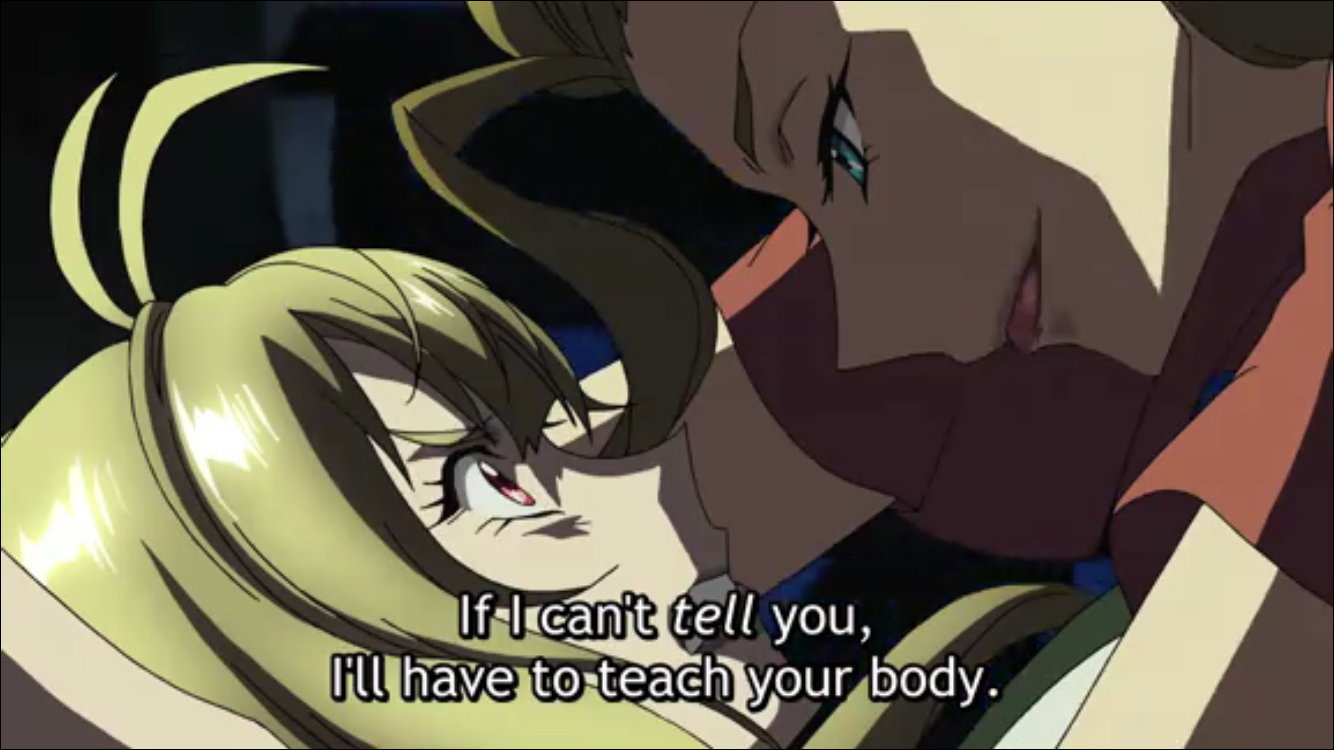
Part of this is a personal conviction and part of this applies to everyone. We don’t condone or promote any kind of sex before marriage, homosexual or otherwise. However, in a world that promotes this idea, we can understand how and why it appears in stories, as well as its effectiveness as a storytelling device. But, regardless of your actual feelings on sex, using sex as anything other than an effective storytelling tool is degrading to the intimacy and importance of the action in the correct context. How much you show in the scene, how and why you show it, all of this is important to how effective the scene is in portraying the themes and ideas that it’s attempting to. There are a few places where sex shows up in the show, and we have varying reactions to it in each instance. Each scene is graded based on how effective it is at adding to the story, and how unnecessarily salacious it was or wasn’t.
SPOILERS
- Initial probe installation in the first episode that looked like anal rape = This scene should have been more tasteful and less salacious, but it served a purpose in the story as a wake-up call to the coming agony of Ange. 5/10.
- Zola tries to rape Ange in order to make her submissive to her command, and because she’s a bad person = The scene makes sense within the context of the story, isn’t incredibly gratuitous, and ends before anything really happens. 7/10.
- Hilda replaces Zola as head harem master. The scene(s) shows Hilda, Rosalie, and Chris in bed going at it = Salacious, unnecessary, gross, etc. Exists merely to tantalize and arouse. The exact same story effect could be achieved by having Hilda walk around in her underwear with the other two asleep in bed spooning. This scene came up quite a bit, really guys? An unfortunate addition. 2/10.
MAJOR SUPER SPOILERS
- Salia and Embryo sitting in bed after. Salia’s obviously naked under the covers. = In character for Embryo and emphasizes Salia’s complete and utter dependence on Embryo at this point. They don’t really show anything and it achieves its storytelling purpose. 7/10.
- Ange and Tusk go at it right after he miraculously comes back from the dead. Not really any action before they cut away to afterwards. They do it out in the open, but plenty of glaring light censors the naughty bits. = This scene actually makes the most sense for the whole story. Ange is an emotional wreck and needs comfort, Tusk is back from the dead, it serves as a solidification of their relationship as well as her acknowledgement of him and his importance to her. Despite the full nudity, the naughty bits are covered and it all works within context and adds some depth to the story and factors into the ultimate battle against Embryo. 9/10
- Embryo transports Ange into a space-time void and then uses his super powers to try to rape her. He remains fully clothed, but makes her clothes explode and then uses tele-kinetic vines to stretch her out. = Completely within character for Embryo and appropriate for the circumstances. No titillation, no fanservice, just dread for Ange. And at the same time, Ange doesn’t collapse into a quivering heap, instead she starts singing the space-time bending song which lets her friends teleport to her space-time bubble and rescue her. The best way to address all the characters involved without playing it up for boob shots. Rape still sucks. 8/10.
END SPOILERS
It might seem a little weird that someone who decries pre-marital sex explains all of this so methodically, but that hypocrisy is something we’re well aware of and currently working through and struggling with. Also, we felt it was our duty as part of this review to inform you of this part of the show since it’s both vital, and potentially a morality problem. So, basically, it’s a mixed bag. Some scenes add to the story and flow naturally out of their established characters, and there are other scenes that just really shouldn’t be there at all. It’s there…deal with it?
Plot Holes, Plot Problems, etc.

The show markets itself as an ecchi, mecha, yuri anime. No one is expecting a perfect plot. But there are a number of threads left hanging at the end of the show. Aside from that, sometimes it seems like characters act dumb just to make the plot last longer, though this mostly only happens near the beginning. They do resolve more threads than we originally anticipated, so it’s not all awful. That said, the plot-holes they don’t cover are basically just depicted to the audience as a big ol’ “F-You!”
SPOILERS
What’s with the multiverse versions of Ange and Salako? Is that a re-incarnation thing? Why does the ring make Vilkiss move? How on Earth does the song destroy space-time barriers? How does the Vilkiss move on its own? Why does the Vilkiss need royal blood to work? How did Tusk and Momoke survive ep. 22? Why were his gunshot wounds healed? How will they repopulate old earth? Will Tusk become the owner of the world’s biggest harem in human existence? What happened to the nations that weren’t the Empire of Misurugi? How do those pilot outfits fit so tightly when they aren’t made of legit spandex?
Sorry this review is so long, But we felt it was necessary to address all of the strengths and weaknesses of the show since it is so highly reviled. Also, we just like to analyze and say stuff. In short, we really like the show, but we can totally understand why some people wouldn’t be into it. The going theory is you have to make it to episode six. After you get to episode six (ironically, the bikini episode), the story really picks up and gets going. This isn’t the usual three-episode stop-gap like it is for most anime, but in this case, we think it’s worth it. It’s difficult for us to recommend just because of all the content issues, but in the end, it turns out so well that it’s hard not to recommend it. It addressed so many different ideas and important themes while developing incredibly awesome characters from templates that we all hated.

